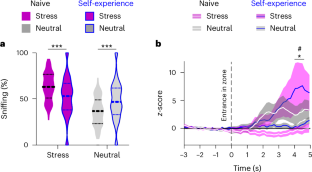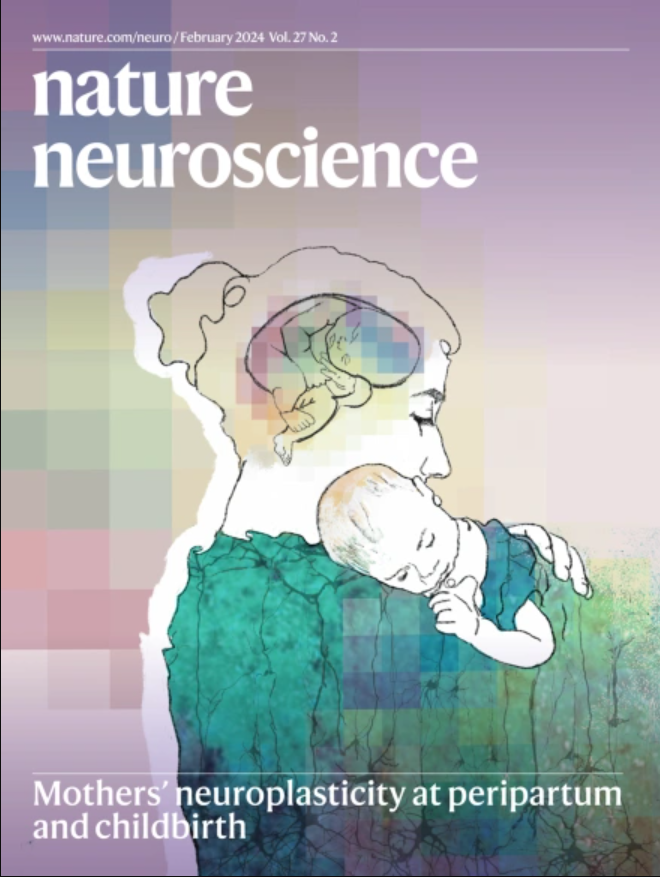消极的自我体验会影响对他人情绪状态的反应
IF 21.2
1区 医学
Q1 NEUROSCIENCES
引用次数: 0
摘要
老鼠对其他老鼠的压力反应不同,这取决于它们自己过去对相同(但不是不同)压力的经历。内侧前额叶皮层(mPFC)中的促肾上腺皮质激素释放因子(CRF)神经元活动特异性调节情感过去经验对他人情绪反应的影响,这种影响在女性中是发情依赖性的,在男性中是显性依赖性的。本文章由计算机程序翻译,如有差异,请以英文原文为准。


Negative self-experiences shape responses to others’ emotional states
Mice react differently to others’ stress depending on their own past experience of the same (but not different) stress. Corticotropin-releasing factor (CRF) neuron activity in the medial prefrontal cortex (mPFC) specifically modulates the influence of affective past experience on emotional reactions to others, which was estrus-dependent in females and dominance-dependent in males.
求助全文
通过发布文献求助,成功后即可免费获取论文全文。
去求助
来源期刊

Nature neuroscience
医学-神经科学
CiteScore
38.60
自引率
1.20%
发文量
212
审稿时长
1 months
期刊介绍:
Nature Neuroscience, a multidisciplinary journal, publishes papers of the utmost quality and significance across all realms of neuroscience. The editors welcome contributions spanning molecular, cellular, systems, and cognitive neuroscience, along with psychophysics, computational modeling, and nervous system disorders. While no area is off-limits, studies offering fundamental insights into nervous system function receive priority.
The journal offers high visibility to both readers and authors, fostering interdisciplinary communication and accessibility to a broad audience. It maintains high standards of copy editing and production, rigorous peer review, rapid publication, and operates independently from academic societies and other vested interests.
In addition to primary research, Nature Neuroscience features news and views, reviews, editorials, commentaries, perspectives, book reviews, and correspondence, aiming to serve as the voice of the global neuroscience community.
 求助内容:
求助内容: 应助结果提醒方式:
应助结果提醒方式:


